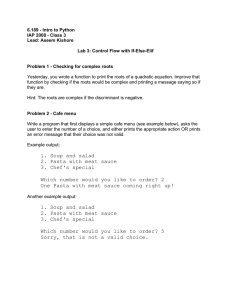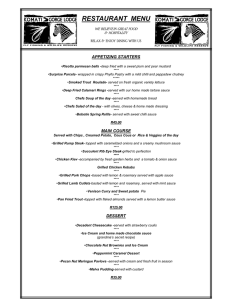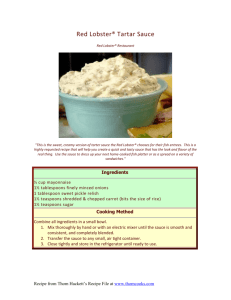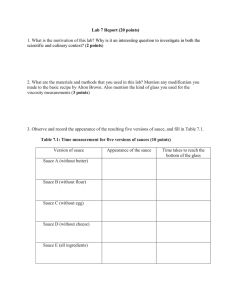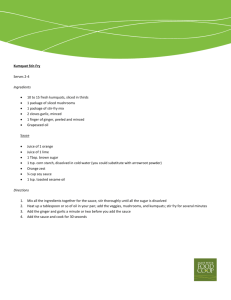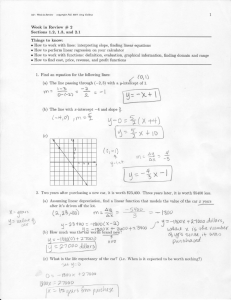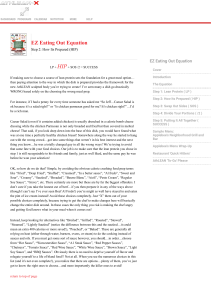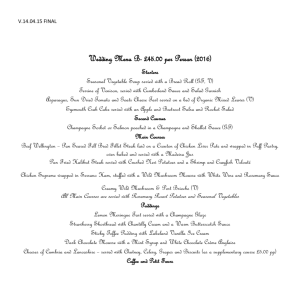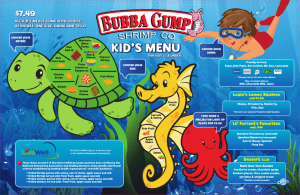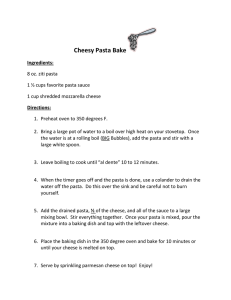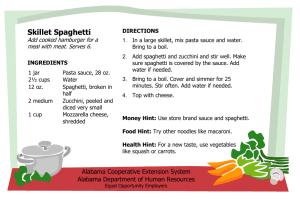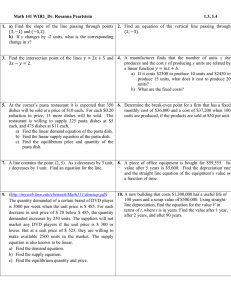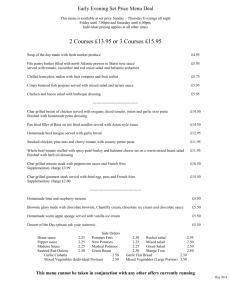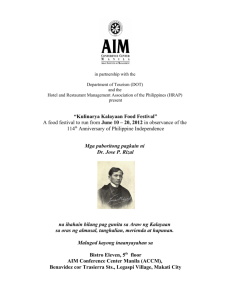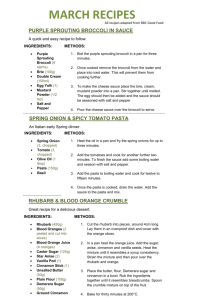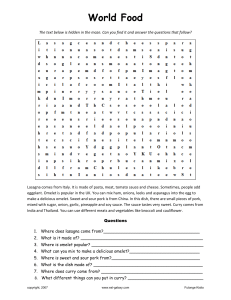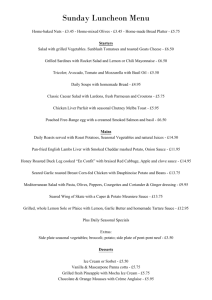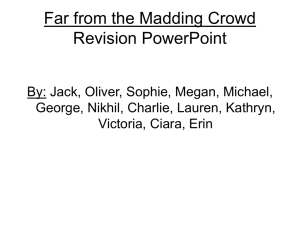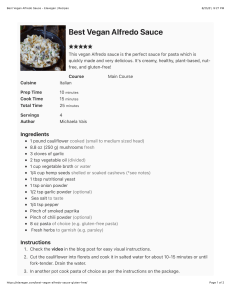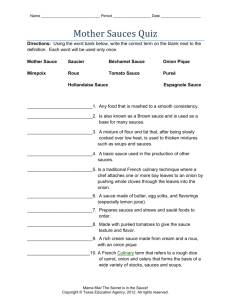Showing, not Telling
advertisement
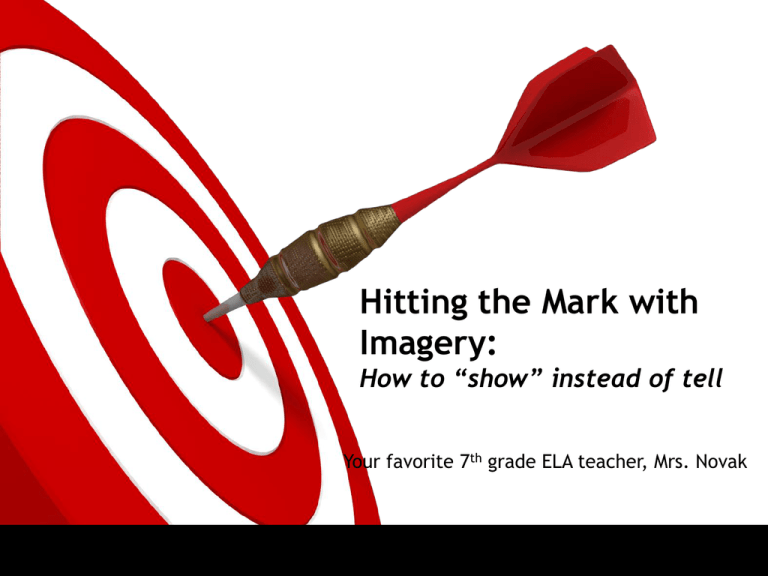
Hitting the Mark with Imagery: How to “show” instead of tell Your favorite 7th grade ELA teacher, Mrs. Novak Do-Now Read the following menu items. 1. Identify which item you would choose. 2. Justify your reasons for choosing that item. 3. Draw the item, using colored pencils. Item #1: A delicious pasta dish with the best sauce in the world. The pasta is so soft. It is like biting into heaven. The sauce is steaming and filled with amazing spices. Item #2: The meat literally falls off the bone in this dish. The side items with it are cooked perfectly and the sauce is to die for. It is so creamy and fantastic. Item #3: This seafood dish is as fresh as it gets. It is grilled perfectly and served with the best sauce in the world. The potatoes melt in your mouth. Item #1 : Ziti with anchovy paste, mixed olives, and capers Item #2: Pig knuckles with parsnips, carrots and celery Item #3: Grilled eel with polenta, currants, and field greens Descriptive detail, huh? An effective written description is one that presents a clear picture to your reader – an image. When you use these images, you are creating imagery. Imagery is achieved by using sensory details and figurative language. Review: What is figurative language? Sensory details helps you picture how something: * looks * sounds * smells * tastes * feels So you know EXACTLY what the writer is writing about… Telling vs. Showing Telling It was cold. It was so cold we were freezing. I never thought I would be warm because the wind was blowing very hard. I have never been so cold in my life. Showing Anybody could see how cold it got. The blue wind had glass edges to it, stiffening muscles and practically cutting through the stitches of our bright orange ski parkas. While the wind howled like a dog, its pointed fingers stabbed our teeth like icicles, and our voices jiggled every time we talked.
